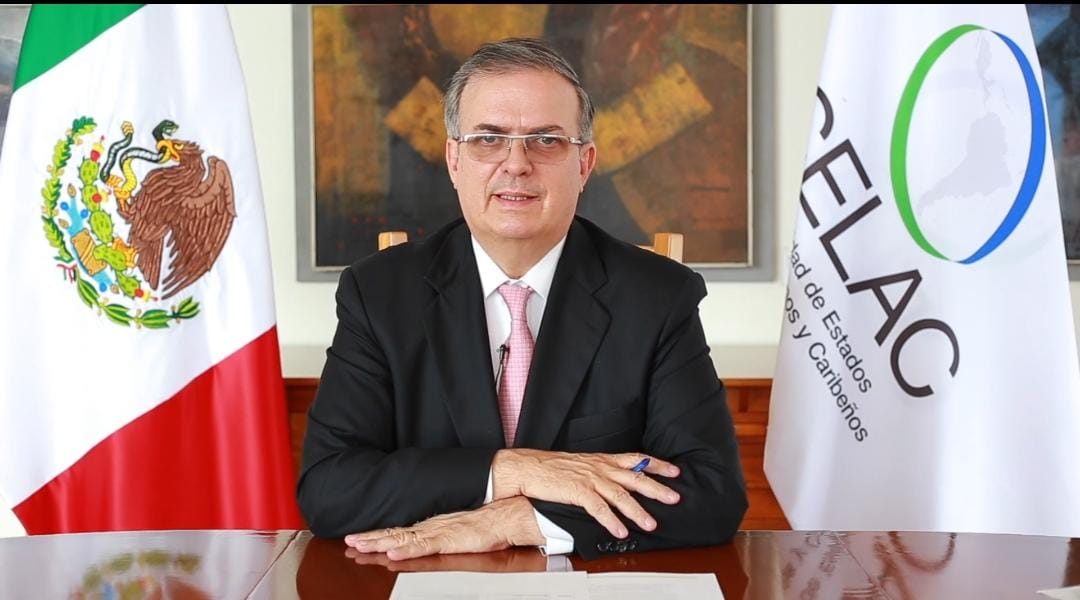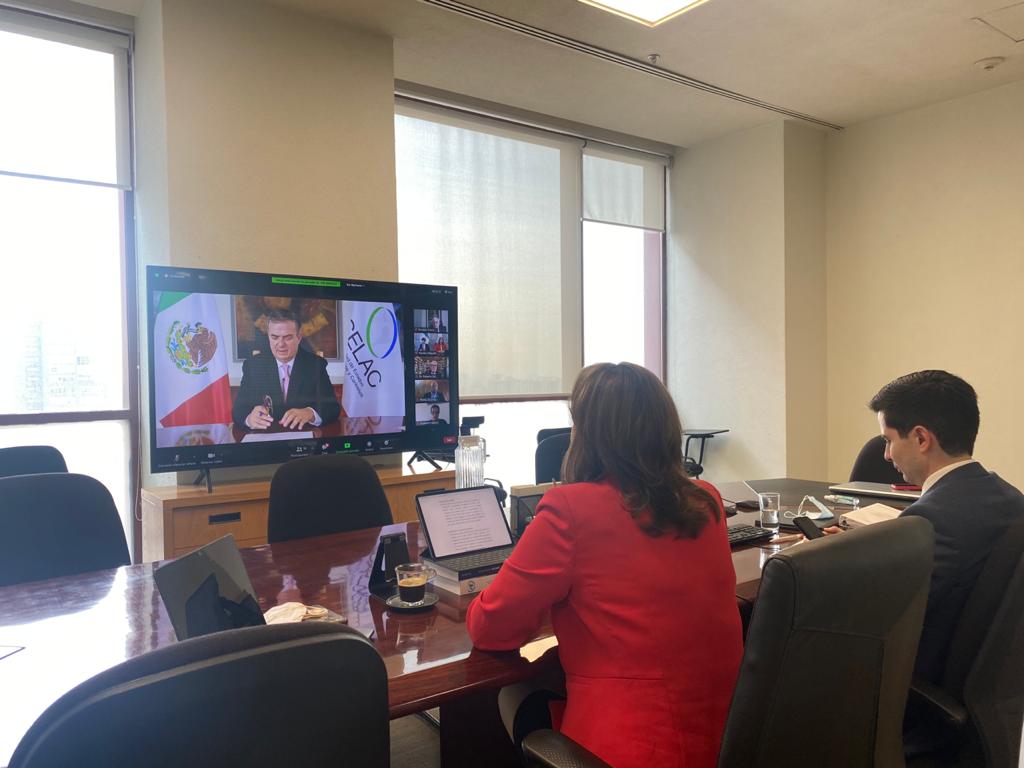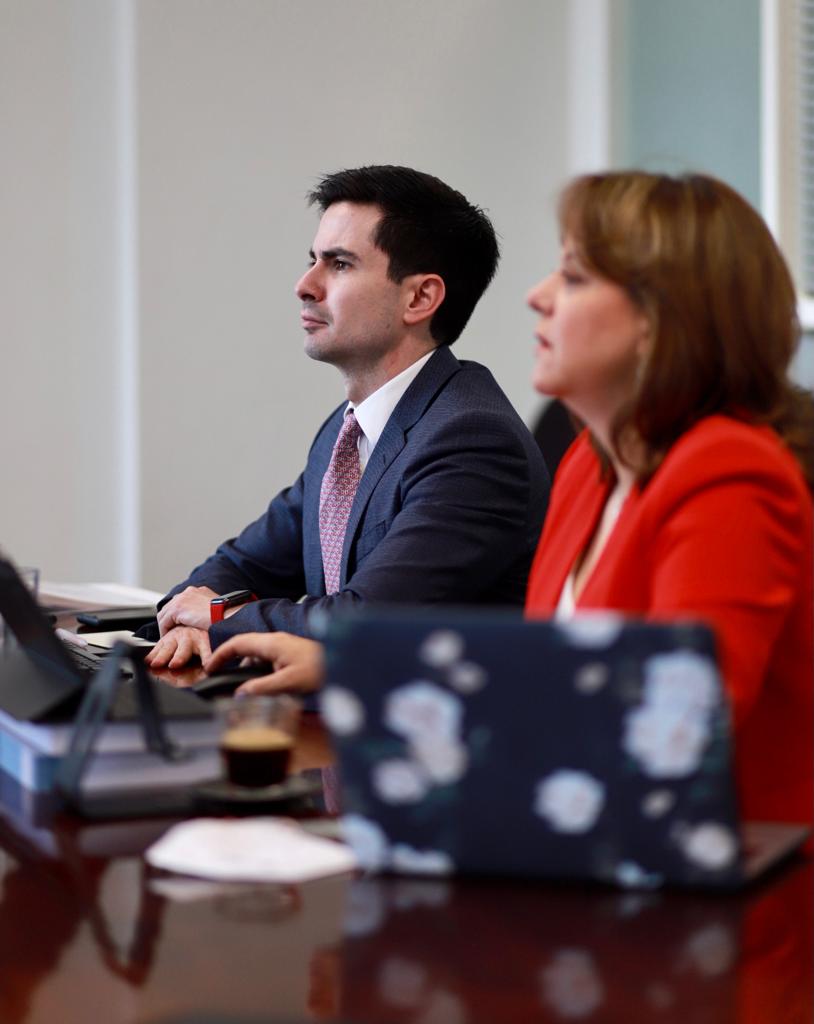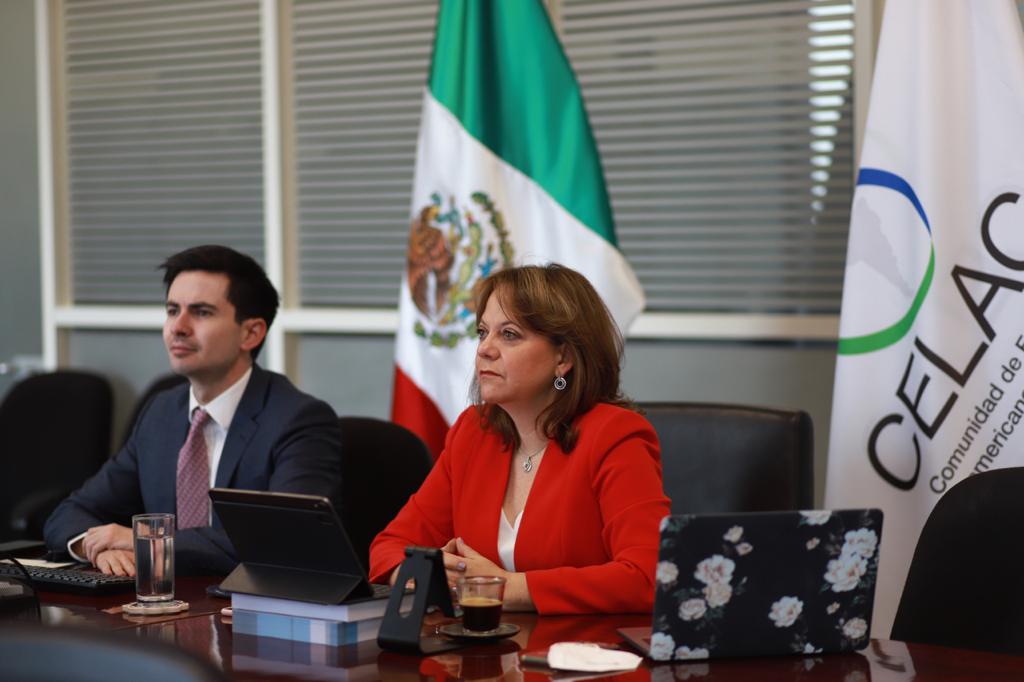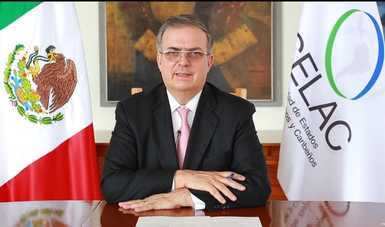- CELAC is the first organization to build a portfolio of vaccines in Latin America and the Caribbean, including Brazil, a non-member.
- During the meeting, the members and their researchers pledged to prioritize requests for the vaccine from Latin America and the Caribbean.
- ECLAC has a Comprehensive Health Self-Sufficiency Plan, specifically focused on increasing the production and distribution of vaccines and medicines in the region.
With Mexico as president pro tempore (PPT) of the Community of Latin American and Caribbean States (CELAC), a virtual meeting on the technological development of CELAC COVID-19 vaccines was held today with the eight research centers that develop the most advanced vaccines in the region, from Argentina, Brazil, Chile, Cuba and Mexico.
The event was led by Foreign Secretary Marcelo Ebrard, who was accompanied in the opening session by the Undersecretary for Multilateral Affairs and Human Rights, Martha Delgado; ECLAC Executive Secretary Alicia Bárcena; the rector of the National Autonomous University of Mexico (UNAM), Enrique Graue Wiechers; the Director General of the National Polytechnic Institute (IPN), Arturo Reyes Sandoval; the Director of the Pan American Health Organization, Carissa Etienne; the president of the WHO Strategic Advisory Group of Experts, Alejandro Cravioto, and Mexico's national CELAC coordinator, Efraín Guadarrama.
In his remarks, Foreign Secretary Ebrard thanked everyone for their collaboration and follow-up and stressed that the prospect of achieving success with Latin American and Caribbean-developed COVID-19 vaccines was growing with each passing day. This will drastically reduce dependence on abroad in the coming months, "which makes us very happy and is a reason for enthusiasm, hope and anticipation, because it shows that we can," he said.
In addition, he pointed out that Mexico will give preference to the successful regional vaccines during the coming vaccination cycles because, "it's not just desirable, but essential, to ensure that our interests are protected--in this case, the health of our countries and of our societies.”
ECLAC Executive Secretary Alicia Bárcena said that, at Mexico's request as CELAC PPT, her office is in the process of implementing a Comprehensive Health Self-Sufficiency Plan specifically focused on increasing the production and distribution of vaccines and medicines in the region covered by CELAC.
The institutions that presented their vaccine initiatives were: the University of San Martín, from Argentina; the Butantan Institute and the Oswaldo Cruz Foundation, from Brazil; the Catholic University of Chile; Biocubafarma, from Cuba; and AVIMEX, UNAM and IPN, from Mexico.
The meeting positioned CELAC as a forum for supporting the strongest current regional projects in order to obtain, in the shortest possible time, the capacity and infrastructure necessary to produce COVID-19 vaccines in laboratories in Latin America and the Caribbean, thereby minimizing the region's dependence on vaccines from elsewhere.
Richard J. Hatchett, Executive Director of the Coalition for Epidemic Preparedness Innovations (CEPI) noted that the emergence of new variants of COVID-19 clearly shows the importance of continuing to invest in the research and development of vaccines to stay one step ahead of the virus, specifically when it comes to next-generation vaccine candidates.
The event was closed by Efraín Guadarrama, national coordinator, and Roberto Escalante, Secretary-General of the Association of Latin American and Caribbean Universities, who highlighted the importance becoming self-sufficient by developing medicines, vaccines, medical supplies and equipment, and by substantially reducing dependence on other regions.
CELAC is an intergovernmental forum for dialogue and political coordination. Its members include the 33 countries of Latin America and the Caribbean. It is committed to gradually moving towards the region's integration, while striking a balance between unity and the political, economic, social and cultural diversities of the 600 million inhabitants of Latin America and the Caribbean. Mexico was CELAC PPT in 2020 and was reelected for 2021.
